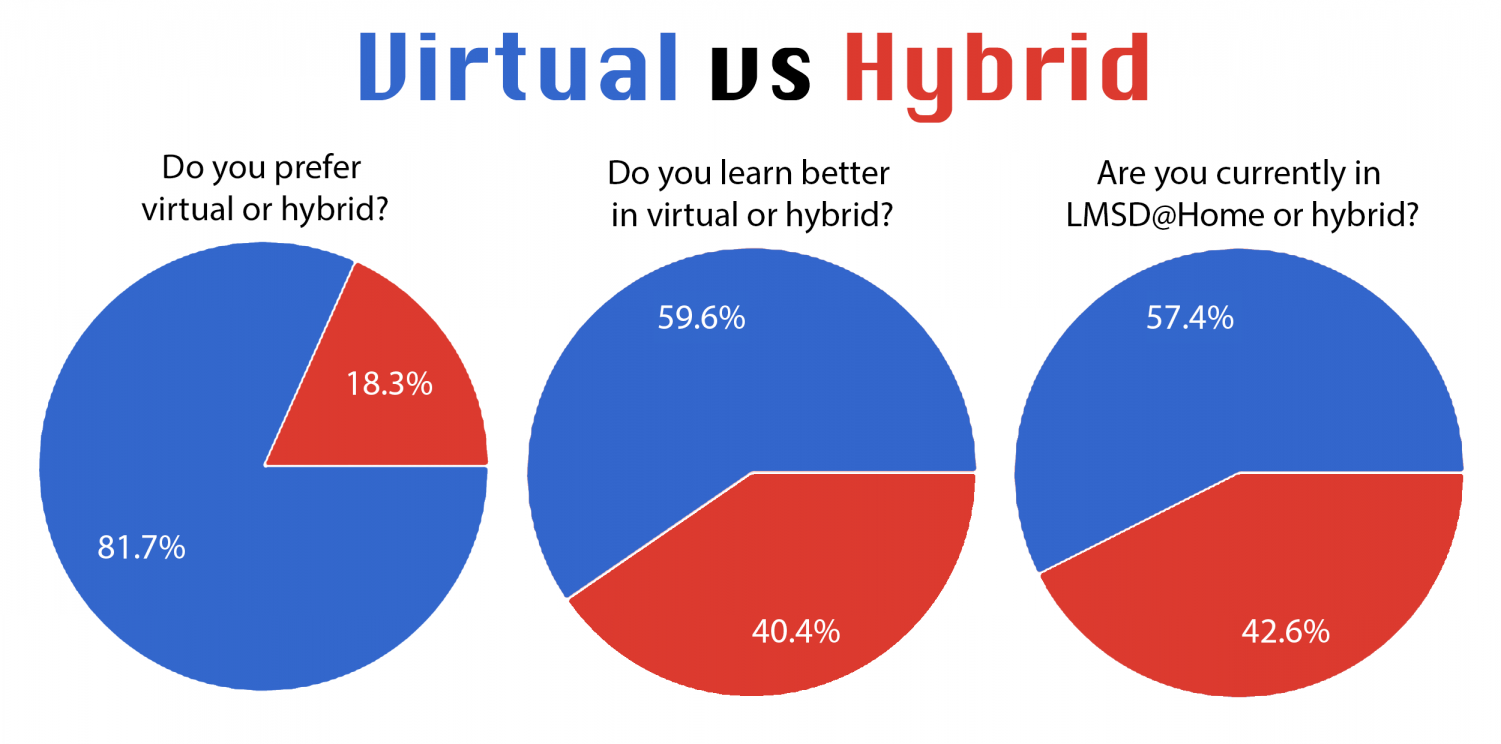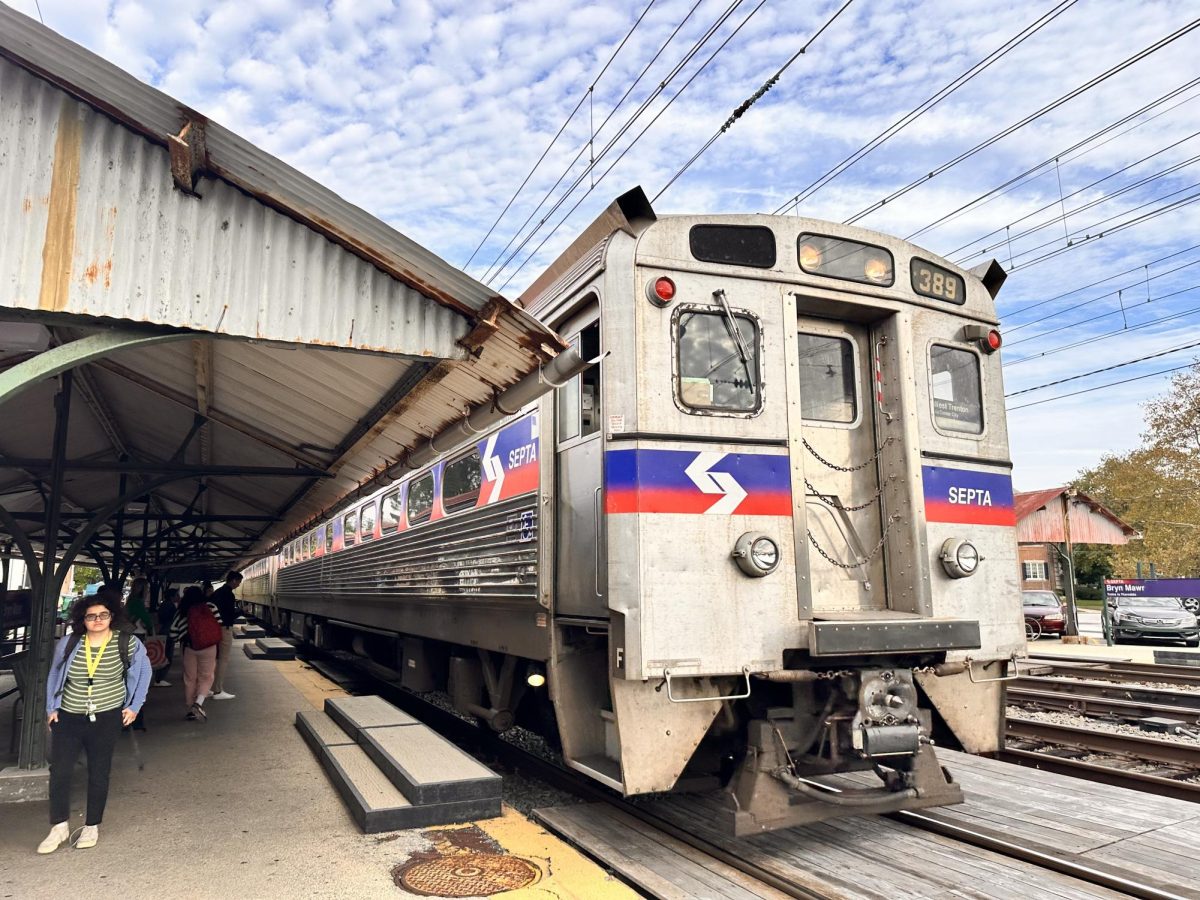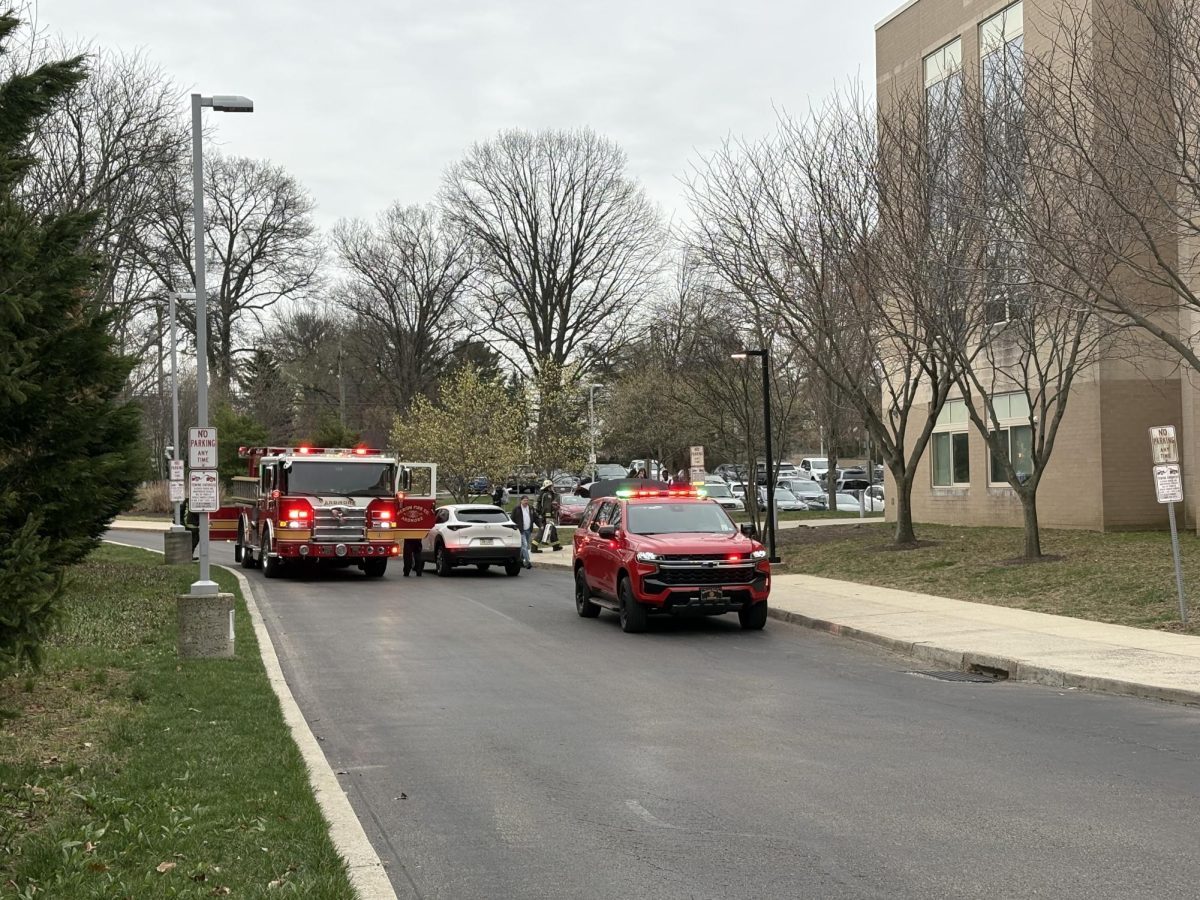
December 14 marked the third Monday in a row in which LM students began the week with a schedule that was drastically different than that of the week prior. Due to rising COVID-19 cases and vocal parents and students on either side of the in-person vs. virtual schooling debate, the administration has been jumping back and forth between schedules, finally landing on virtual schooling at least until January 8.
Although the administration can’t seem to settle on one schedule, there is a clear favorite among students: the virtual schedule. In a recent survey, 81.9 percent of students said they prefer the virtual schedule over the hybrid schedule, citing the later start time and the longer breaks in between classes as the main reasons why. It’s true that there are many benefits to virtual school, aside from the obvious decrease in the risk of contracting COVID-19. Students get to sleep in later, take fewer classes per day, and enjoy longer breaks in between classes, giving them time to recover from long periods of time spent staring at a computer screen. While many students felt that they benefited from the in-person instruction in the hybrid model, the days spent online while still on the hybrid schedule seem to be universally detested by students. One student claimed that “spending seven hours a day staring at the computer with practically no break is completely miserable and painful,” while another called the online hybrid schedule “exhausting.” Yet, others felt that those brutal online days in the hybrid schedule were worth it if it meant they could learn in-person two days a week. This split between students again raises the question that educators, parents, and students have been asking since March: how exactly has the pandemic impacted students’ ability to learn?
In the past few months, many news sources have been throwing around the term “lost generation” when referring to children who are attending school during the pandemic. In November, the United Nations Children’s Fund (UNICEF) published a report claiming that while school closures did not significantly mitigate the spread of the virus, they may be causing long-term harm to students. “Unless the global community urgently changes priorities,” the organization warned, “the potential of this generation of young people may well be lost.” Although major news sources continue to emphasize the importance of in-person class for students to learn, many LM students (59.6 percent, to be exact) feel that they learn better in virtual school than they do in hybrid. Multiple students called it “less stressful” than the hybrid schedule. However, this feeling was not universal. Of the students that felt they learned better in hybrid, many claimed to be less easily distracted when attending in-person school, and believed that they benefited from more one on one time with teachers. One student claimed that their grades dropped when following the virtual schedule, and reported having “a hard time learning, being productive and doing work” while schooling at home. A lot of students’ complaints about attending school online seemed specific to the more grueling online days in the hybrid schedule. As one student said bluntly, “7.5 hours online is terrible. It hurts physically and mentally.” Many others expressed that although they learned better in person, they preferred the virtual schedule overall because they found it very difficult to learn online in the hybrid schedule.
A common conclusion among students was that although the idea of attending school in-person was nice, between the strict, albeit necessary precautions that in-person students were required to take and the natural disconnect that comes with teachers having to instruct the half of the class that on Zoom and the half that is in-person simultaneously, hybrid just was not worth it. One student stated that “so many of my teachers are at home that it’s not really worth going back to school.” While another student claimed that “there’s no point in being in school if you’re going to stay on zoom.” While several students claimed that they chose to attend school in person when they could because they enjoyed the “social aspect,” one believed that hybrid took “all the fun aspects” out of school.
Although students seem to prefer the virtual schedule overall, opinions differ greatly across the student body. Some feel that the recent surge in COVID-19 cases is proof that it is unsafe to attend in-person school right now, while others insist that the school board would not have allowed students to go in if that were true. Some felt they learned better on the more relaxed virtual schedule, while others felt virtual school had severe negative impacts on the quality of their education. Despite this difference, there is one point that most students agree on: neither schedule is an ideal long term solution.






